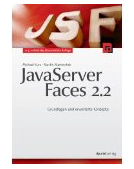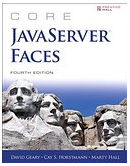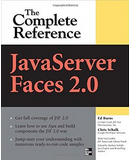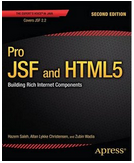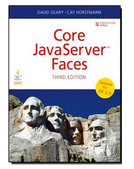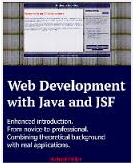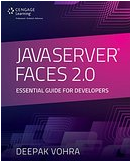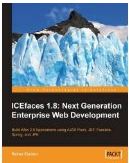[OmniFaces utilities] The
getParams() returns an unmodifiable map with all request query string or view parameters, appended with all child
UIParameter components (
<f|o:param>) of the given parent component. Those with
disabled=true or an empty name or an empty value are skipped. The
<f|o:param> will override any included view or request parameters on the same name.
Method:
Usage:
Let's suppose that we have the following page:
<f:metadata>
<f:viewParam
name="playernameparam"
value="#{playersBean.playerName}"/>
<f:viewParam
name="playersurnameparam"
value="#{playersBean.playerSurname}"/>
</f:metadata>
<h:head>
<title></title>
</h:head>
<h:body>
<h:panelGrid columns="2">
<h:form id="form">
<h:commandButton id="submit"
value="Get all params"
action="#{playersBean.allParams()}">
<f:param name="ageParam" value="29"/>
<o:param name="playParam" value="left"/>
</h:commandButton>
</h:form>
</h:panelGrid>
</h:body>
Further, we can use the
Components#getParams()
utility to programmatically collect the
UIParameters
(
<f|o:param/>)
nested in the above
<h:commandButton/>
and the view parameters. This can be accomplish in different JSF
artifacts; for example, in a bean (obviously, there are several ways to
identify the parent
UIComponent
of the
UIParameters
that we want to collect - the
UIComponent
that should be passed to the
#getParams()
should be obtained in a convenient manner depending on your circumstances;
below, we simply used the
Components#findComponent()
utility):
import
org.omnifaces.util.Components;
...
public void
allParams() {
UIComponent uc = Components.findComponent("form:submit");
Map<String, List<String>>
paramsMap = Components.getParams(uc, false, true);
for (Map.Entry<String,
List<String>> entry : paramsMap.entrySet()) {
System.out.println("Param: "+
entry.getKey() + "/" + entry.getValue());
}
}
Let's suppose that we start the application with an URL like this:
http://myapp/?playernameparam=rafael&playersurnameparam=nadal
After we press the Get
all params button the server log will reveal the following output:
Param:
playernameparam/[rafael]
Param:
playersurnameparam/[nadal]
Param:
ageParam/[29]
Param:
playParam/[left]









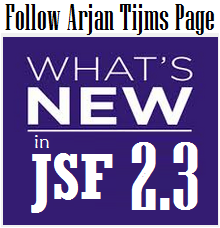

 Arrays
Arrays Converters
Converters










 JSF 2 Tutorials at www.mkyong.com
JSF 2 Tutorials at www.mkyong.com  JavaServer Faces (JSF) Tutorial
JavaServer Faces (JSF) Tutorial 